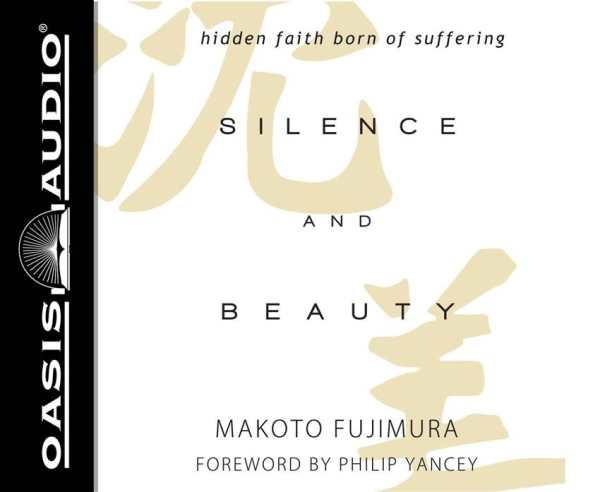Silence and Beauty
Hidden Faith Born of Suffering
This illuminating, unique composition was crafted by the hands of a master.
Makoto Fujimura’s Silence and Beauty is a prismatic analysis of Shusaku Endo’s novel Silence and a glimpse into the often enigmatic culture of Japan.
Straddling both the East and West, Fujimura is in an advantaged position to explore the Japanese context of Endo’s novel about Portuguese Jesuit priests wrestling with the nature of faith, doubt, and betrayal in medieval Japan. He approaches his subjects with a skilled hand, painting with words. As an audiobook, the narration is smooth and clear enough to convey the full impact of Fujimura’s prose.
Many Western readers of Silence may struggle with the ambiguity and suffering present, and while Fujimura offers a competent literary analysis of the novel itself—particularly a revealing chapter devoted to the motivations, psychology, and redemption of Endo’s Father Rodrigues—the wider discussion of Japanese culture and the nature of art, especially religious art, are the most compelling portions of the book. Here, the tenuous relationship between faith and doubt is unabashedly explored. Fujimura insists that doubt is an integral part of a deep faith and that it is possible to maintain orthodoxy while still remaining open to the myriad possibilities of the unknown and the unquantifiable.
Japanese culture has an affinity for ambiguity and therefore rejects most modes of black-and-white thinking. Endo refers to this as the “swamp of Japan” and argues that for Christianity to have any hope of taking root there, it must find some way to adapt. Fujimura looks to the mysteries inherent in artistic creation and suggests that Christians must become comfortable outside of prescribed boxes.
Silence and Beauty is an illuminating, unique composition crafted from the finest materials in the hands of a master.
Reviewed by
Meagan Logsdon
Disclosure: This article is not an endorsement, but a review. The publisher of this book provided free copies of the book to have their book reviewed by a professional reviewer. No fee was paid by the publisher for this review. Foreword Reviews only recommends books that we love. Foreword Magazine, Inc. is disclosing this in accordance with the Federal Trade Commission’s 16 CFR, Part 255.

